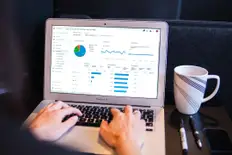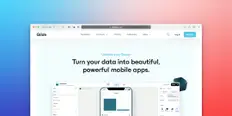与 Ava 聊天 - 您的人工智能业务顾问
大家好,我是 Ava,您的 AI 指南,可帮助您增强业务!
无论您已经在经营一家企业还是梦想创办一家企业,我们都会用AI赋能威客帮助您将愿景变为现实。分享您的业务目标,我们将共同创建一个项目,供我们才华横溢的威客竞标。让我们让您的愿景成为现实!
我已经有一份事业
我要创业
将对话发送到您的电子邮件时出现问题。请稍后再试。
您每小时只能保存一次对话。请稍后再试。
你们的谈话太短了。继续与 Ava 聊天以启用保存功能。
Data Analysis: A Guide to Freelance Hiring
Learn how to hire and work with freelance Data Analysts for better data-driven decision making.
2023年5月24日 • 阅读需16分钟

Expert in Business, Accounting, HR & Legal
复制到剪切板失败,请修改权限后重试。
复制到剪贴板。

Have you ever found yourself in need of a data analyst, but didn't know where to begin your search? Well, you're in luck! We've put together this comprehensive guide to help you find the perfect "Data Analyst Near Me." In today's data-driven world, making sense of the plethora of information available to us is more crucial than ever. Data Analysis is a powerful tool that can help businesses make smart decisions and stay ahead of the competition. And who better to help you with this endeavor than expert Data Analysts ?
In this article, we'll take a deep dive into the world of data analysis and explore the numerous ways data analysts can benefit your business. From identifying the right data analyst for your needs to understanding the cost and deliverables associated with their services, we've got you covered.
We'll also discuss various working arrangements with data analysts, such as remote collaboration and the pros and cons of hiring local vs. remote talent. Additionally, we'll touch upon the differences between freelance and agency data analysts to help you determine which option is best suited for your business needs.
Our aim is to provide you with all the information you need to make an informed decision when it comes to hiring a data analyst. So sit back, relax, and let us guide you through this exciting world of data analysis as we embark on this journey together!
Let's Start with the Basics: What is Data Analysis?
Data analysis, in a nutshell, is the process of examining, cleaning, transforming, and modeling data to extract useful insights, draw conclusions, and support decision-making. Sounds pretty important, right? It is! In the age of technology, we are constantly bombarded with information, and data analysis helps us make sense of it all.
Imagine you're a business owner with a wealth of sales data at your disposal. The sheer amount of numbers and figures can be overwhelming. But fear not! Data analysis comes to the rescue by organizing and interpreting this raw data into meaningful patterns and trends. This valuable information can then be used to improve your business's performance, identify new opportunities, and predict future outcomes.
Data analysis involves a variety of techniques and tools to dissect and interpret data. The methods used depend on the type of data being analyzed and the goals of the analysis. For example, when dealing with numerical data, you might use statistical methods such as regression or correlation analysis to identify relationships between variables. On the other hand, textual data might require natural language processing techniques to understand the sentiment and topics present in the content.
In today's competitive business landscape, data analysis has become an essential skill that can help organizations stay ahead of the curve. It enables them to make informed decisions based on factual evidence instead of relying solely on intuition or guesswork.
Now that you have an understanding of what data analysis entails let us introduce you to the wizards behind it all - Data Analysts!
Meet the Data Wizards: Who are Data Analysts?
As we mentioned earlier, data analysts are the wizards behind the scenes who work their magic to transform raw data into valuable insights. They are highly skilled professionals with a keen eye for detail, a strong foundation in mathematics and statistics, and the ability to make sense of complex data sets. But who exactly are these data-savvy individuals, and what does it take to become one?
Data analysts come from a variety of backgrounds and industries, but they typically have at least a bachelor's degree in a related field such as mathematics, statistics, computer science, or engineering. Some even specialize further by obtaining a master's degree or PhD in data analytics or related disciplines. Additionally, many data analysts hold certifications in specialized software and tools used in their field.
Aside from their education and technical prowess, successful data analysts often share certain characteristics. They have exceptional analytical thinking skills, allowing them to identify patterns and trends in raw data that others might miss. They are also excellent communicators, as they must be able to clearly explain their findings and insights to non-technical stakeholders within an organization.
There are some well-known professionals in the field of data analysis who have made significant contributions or gained recognition for their work. For example, Nate Silver is an American statistician and writer who gained fame for his accurate predictions of political elections using statistical models. Another notable figure is Hilary Mason, a renowned data scientist who was previously Chief Scientist at Bitly and Founder of Fast Forward Labs (now Cloudera Fast Forward Labs).
Now that you know more about the talented individuals responsible for turning raw data into actionable insights let's move on to discuss how you can identify a good data analyst for your business needs. So stay tuned as we will share some tips on how to spot the perfect candidate to help your organization harness the power of data!
Unlocking the Potential of Data: How can Data Analysts Help Your Business?
So, we've established that data analysts are skilled professionals who excel in transforming raw data into valuable insights. But how exactly can their expertise benefit your business? Well, buckle up because we're about to explore the incredible ways in which data analysts can help you unlock the full potential of your data!
First and foremost, data analysts can identify trends and patterns hidden within your data that you might have never noticed. By analyzing historical and current data, they can help you make informed decisions, spot opportunities for growth, and even predict future outcomes. This means that with the assistance of a data analyst, you can take advantage of new revenue streams, improve operational efficiency, and ultimately drive your business forward.
Data-driven decision-making is also crucial for improving customer satisfaction. Data analysts can help you understand your customer's preferences, behavior, and needs based on their online interactions and transactions. With this information at hand, you can tailor your products or services to meet their specific requirements, thus fostering loyalty and increasing customer retention rates.
Moreover, data analysts play a vital role in risk management. By identifying potential risks in your operations or market conditions, they can help you devise strategies to mitigate these risks before they impact your business adversely. This proactive approach to risk management allows you to stay ahead of the game and maintain a competitive edge in the market.
Finally, effective data analysis can lead to cost savings for your business. With the ability to identify inefficiencies in processes or systems through data analysis, you can make targeted adjustments that result in substantial cost reductions. Not only does this enhance productivity but it also contributes positively to your bottom line.
Having discovered the myriad benefits of engaging a data analyst for your business needs, you may be wondering how to go about finding the right person for the job. Fear not! In the next section, we'll share some valuable insights on how to identify a good data analyst who will help you harness the power of data and elevate your business to new heights. So, let's continue our journey into the world of data analytics!
Identifying a Good Data Analyst
Now that we understand the significance of data analysts and how they can help your business flourish, it's time to delve into the process of finding the right fit for your needs. Identifying a good data analyst can be a daunting task, but have no fear! We're here to provide you with some useful tips and pointers to make your search a breeze.
First and foremost, it's crucial to consider the skills and qualifications of potential data analysts. Look for professionals who possess a strong foundation in statistics, mathematics, and computer programming. Additionally, they should be well-versed in data visualization tools, such as Tableau or D3.js, and programming languages like Python, R, or SQL. Having a solid grasp of these skills will ensure that they can efficiently analyze your data and present their findings in an easily digestible manner.
Another important factor to evaluate is their experience in your specific industry or field. A data analyst who has worked with businesses similar to yours will have a better understanding of the unique challenges and nuances associated with your particular sector. This specialized knowledge will enable them to deliver more tailored insights that are directly applicable to your business needs.
Don't forget to assess their communication abilities as well! A good data analyst should be able to articulate complex concepts in accessible language so that everyone on your team – regardless of their background – can comprehend the findings and make informed decisions based on them. So look for candidates who demonstrate excellent written and verbal communication skills along with their technical prowess.
Last but not least, check out their portfolio or past work samples. This will give you a sneak peek into their approach towards data analysis and will help you determine if their style aligns with your business requirements. Don't hesitate to ask for testimonials or references from previous clients either – hearing firsthand about their experiences with the data analyst can provide valuable insights into what you can expect from working with them.
With these considerations in mind, you'll be well on your way to finding the perfect data analyst to help you make the most of your data. But before we move on to discuss how to work effectively with your chosen analyst, let's take a brief detour to explore a crucial aspect that may impact your decision-making process: the cost of a project by a data analyst. So, stay with us as we dive into this important topic!
Cost of a Project by a Data Analyst
As you embark on your journey to find the right data analyst for your business, one critical factor that you'll need to consider is the cost of their services. But worry not! In this section, we'll break down the various aspects that can influence the cost of a data analysis project, ensuring that you have a clear understanding of what to expect and how to budget accordingly.
Firstly, the complexity and scope of your project will play a significant role in determining the overall cost. Projects that require extensive data collection, advanced statistical techniques or custom-built analytical tools will likely be more expensive than those with more straightforward objectives. It's essential to have a clear understanding of your project's requirements and communicate them effectively to potential data analysts so they can provide accurate cost estimates.
Another factor contributing to the cost is the expertise and experience level of the data analyst you choose. Highly skilled analysts with many years of experience under their belt may charge higher rates than those who are just starting out. However, keep in mind that investing in a seasoned professional may save you time and money in the long run as they'll likely deliver more accurate results and actionable insights.
Location can also impact the cost of your data analysis project. Depending on where you're based, hiring a local analyst might be more expensive than engaging a remote professional from another region or country. However, it's essential to weigh any potential savings against other factors like convenience, ease of communication and collaboration, and access to local industry knowledge.
Lastly, consider whether you'd prefer to hire an individual freelance analyst or engage an agency's services. There may be variations in fees between these options, with agencies potentially charging more due to their overheads and team resources. On the other hand, hiring an agency might provide access to a broader range of expertise and support throughout the project. Ultimately, the best choice will depend on your specific needs and preferences.
Now that we've covered the cost aspect, it's time to move on to the next important piece of the puzzle: what should you expect to receive from your data analyst once the project is underway? We're glad you asked! Read on as we delve into the exciting world of deliverables in data analysis projects.
Deliverables from a Data Analyst
So, you've found the perfect data analyst for your project, and you're ready to move forward. Congratulations! But what exactly should you expect in terms of deliverables from your new data-savvy partner? In this section, we'll explore the various outputs that can come from a successful data analysis project, helping you set clear expectations and get the most value out of your collaboration.
First and foremost, your data analyst will provide you with insights gleaned from their analysis of your data. These insights might be presented in the form of reports, charts, graphs, or other visual representations to help you easily understand the findings. The goal is to offer actionable information that can drive decision-making and contribute to the growth of your business.
Apart from these key deliverables, it's essential to maintain open communication with your data analyst throughout the project. This will allow for ongoing collaboration, regular progress updates, and the ability to refine the analysis direction as needed. Remember, a successful data analysis project is often an iterative process, so be prepared to work closely with your analyst to achieve the best results possible.
Now that we've covered the deliverables you can expect from a data analyst, let's explore another crucial aspect of working together: managing remote collaborations. Stay tuned as we dive into the ins and outs of remote work with your data expert!
Working Remotely with a Data Analyst
In today's fast-paced and increasingly connected world, working with a data analyst doesn't have to be limited by geographical boundaries. Thanks to advancements in technology, you can easily collaborate with a talented data expert from anywhere on the globe! In this section, we'll discuss some tips and best practices for working remotely with your data analyst, ensuring that your project moves smoothly and efficiently from start to finish.
First, it's essential to establish clear communication channels. Whether you prefer email, phone calls, video conferences, or other tools like Slack and Trello, make sure both parties are comfortable and familiar with the chosen methods. Regular check-ins can help to keep everyone on track and provide opportunities for feedback and adjustments as needed.
Next, set up a system for sharing files and data securely. There are plenty of cloud-based storage solutions available, such as Google Drive or Dropbox. Ensure that both parties have access to the necessary files and that any sensitive information is protected with appropriate security measures.
Lastly, it's crucial to establish trust between you and your remote data analyst. Be transparent about your expectations and open to their recommendations – remember that they're the expert in this field! By fostering a collaborative and respectful working relationship, you'll be well on your way to a successful data analysis project, regardless of distance.
Now that we've covered the logistics of working remotely with a data analyst, it's time to evaluate the pros and cons of different types of data analyst collaborations. Up next, we'll be discussing the advantages and disadvantages of local versus remote and freelance versus agency data analysts. Stay tuned!
Pros and Cons of Local vs. Remote Data Analysts
As we've just discussed, working remotely with a data analyst has its perks, but what about the alternative? In this section, we'll delve into the advantages and disadvantages of collaborating with local and remote data analysts, helping you make an informed decision about which option best suits your needs. Keep in mind that every project and collaboration is unique, so be sure to weigh these factors in light of your specific circumstances.
Local Data Analysts: Advantages
Local Data Analysts: Disadvantages
Remote Data Analysts: Advantages
Remote Data Analysts: Disadvantages
As you can see, both local and remote data analyst collaborations have their respective advantages and disadvantages. It's important to carefully consider these factors in relation to your specific project requirements when making your decision. Ready for more insights? Let's move on to the next discussion point: evaluating the pros and cons of freelance versus agency data analysts!
Pros and Cons of Freelance vs. Agency Data Analysts
Now that you have a better understanding of the advantages and disadvantages of working with local and remote data analysts, let's explore another important aspect: whether to engage a freelance data analyst or an agency-based analyst. Both options have their merits and drawbacks, so let's dive right in!
Freelance Data Analysts: Advantages
Freelance Data Analysts: Disadvantages
Agency Data Analysts: Advantages
Agency Data Analysts: Disadvantages
To sum up, there are pros and cons associated with both freelance and agency data analysts. Weighing these factors in light of your unique project needs is crucial in determining the best fit for your business. As you digest this information, let's transition to our concluding thoughts and recommendations for making the most of your data analyst engagement!
Final Thoughts and Recommendations
We hope that this guide has provided you with valuable insights into the world of data analysis, including the various options available for engaging a data analyst. As you prepare to embark on your data-driven journey, here are some final thoughts and recommendations:
Understand Your Needs
Before engaging a data analyst, it's important to have a clear understanding of your business objectives and the specific questions you want to answer through data analysis. This will enable you to effectively communicate your requirements and expectations to the analyst, ensuring a smoother collaboration process.
Choose the Right Engagement Model
As we've discussed, there are various engagement models available when hiring a data analyst - local, remote, freelance, or agency-based. Each model comes with its own set of advantages and disadvantages. Consider factors such as your budget, project timeline, and communication preferences when making your decision. Remember that there's no one-size-fits-all solution; choose the model that best aligns with your project needs.
Establish Clear Communication Channels
Maintaining open lines of communication is critical for the success of any project. Establish a communication protocol with your data analyst from the outset - whether that's regular email updates, weekly video calls, or daily check-ins on project management tools. This will ensure everyone stays on the same page throughout the duration of the project.
Be Open to Insights and Adjustments
Data analysis is an iterative process; it may uncover surprising insights or lead to adjustments in your initial hypotheses. Be prepared to adapt as new information emerges and trust in the expertise of your data analyst to guide you through these changes.
With these considerations in mind, you're well on your way to making informed decisions and reaping the benefits of data analysis for your business. And now, for a seamless, user-friendly platform to find and hire expert data analysts, let us introduce you to the wonders of Freelancer.com!
Hire an Expert Data Analyst on Freelancer.com
Now that you have a better understanding of what data analysis is and how it can help your business, it's time to take action and hire an expert data analyst. And what better way to do so than through Freelancer.com ? As the world's largest freelancing marketplace, we connect businesses like yours with top-notch data analysts from all corners of the globe.
At Freelancer.com, you can easily browse through thousands of profiles of competent data analysts with varying degrees of expertise and specializations. Whether you need a junior analyst for a quick one-off project or a seasoned professional to tackle more complex tasks, you'll find the perfect match for your requirements on our platform.
Get Started in Just a Few Simple Steps
Posting your project on Freelancer.com is incredibly easy and takes just a few minutes. Here's how:
Throughout the project, you can use Freelancer.com's built-in communication tools to stay in touch with your data analyst, monitor progress, and provide feedback. And when the project is complete, simply release the final milestone payment to the analyst and leave a review of their work.
Experience the Benefits of Outsourcing to a Global Talent Pool
By choosing to hire through Freelancer.com, you'll gain access to a diverse range of exceptionally talented data analysts from around the world. This not only allows you to find the perfect fit for your project but also helps ensure that you receive high-quality work at competitive rates. After all, when it comes to data analysis, the best solution is often one that strikes a balance between expertise, affordability, and effective communication.
So why wait? Discover the potential of data analysis for your business by hiring an expert data analyst on Freelancer.com today!
告诉我们你需要做什么
输入您的项目名称
相关故事
与我们的Technical Co-Pilots进行沟通来获得项目帮助
专为您推荐的文章

As businesses increasingly rely on data to drive decision-making, finding qualified analysts in close proximity is becoming more crucial than ever.
17 min read

In today's data-driven world, finding the right data mining expert can make all the difference in optimizing business operations and decision-making.
18 min read

Are you looking for ways to easily access statistical analysis services in your area?
18 min read

Are you in need of statistical services and wondering where to find reliable statisticians in your area?
18 min read
谢谢!我们已通过电子邮件向您发送了索取免费积分的链接。
发送电子邮件时出现问题。请再试一次。
加载预览
授予地理位置权限。
您的登录会话已过期而且您已经登出,请再次登录。




